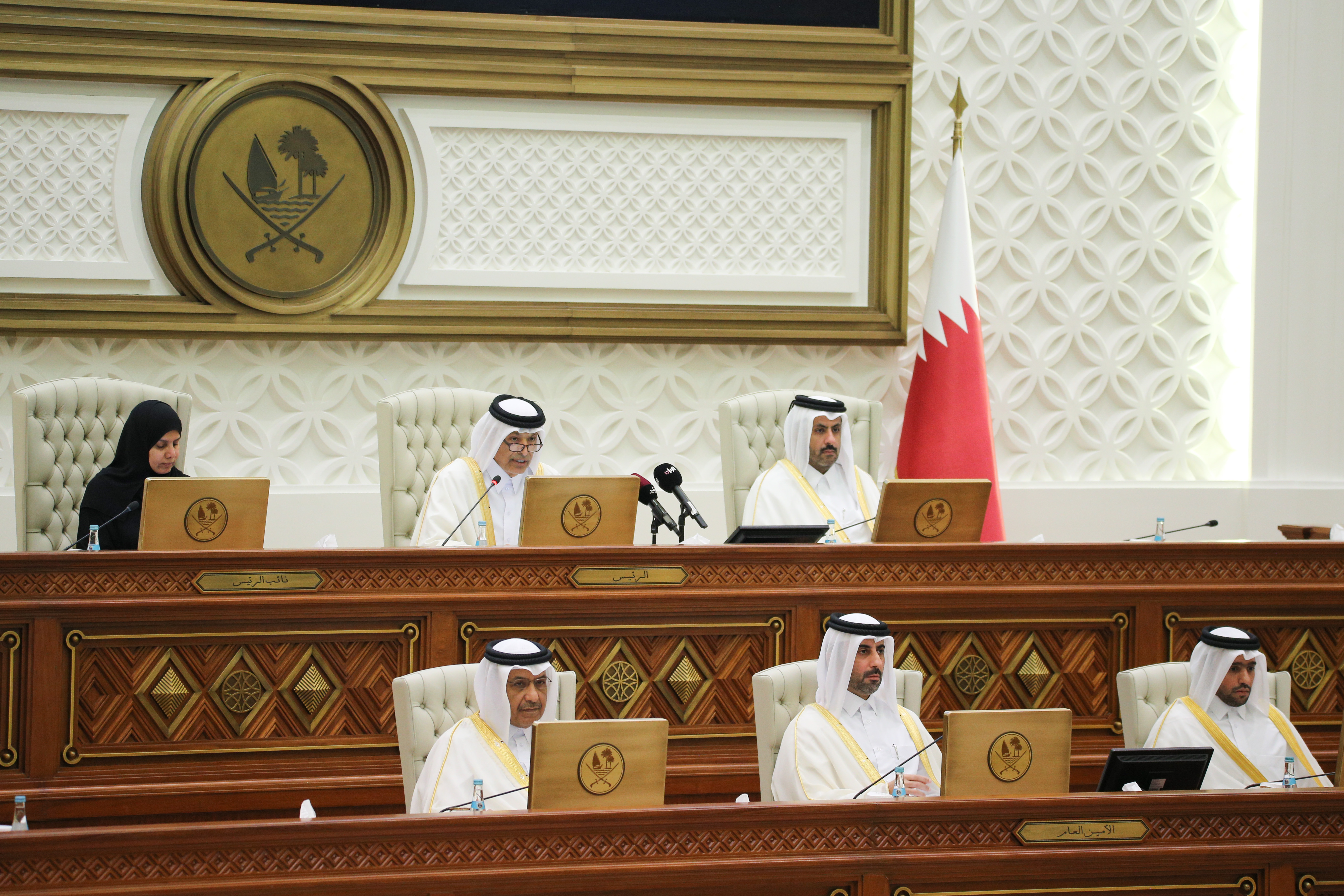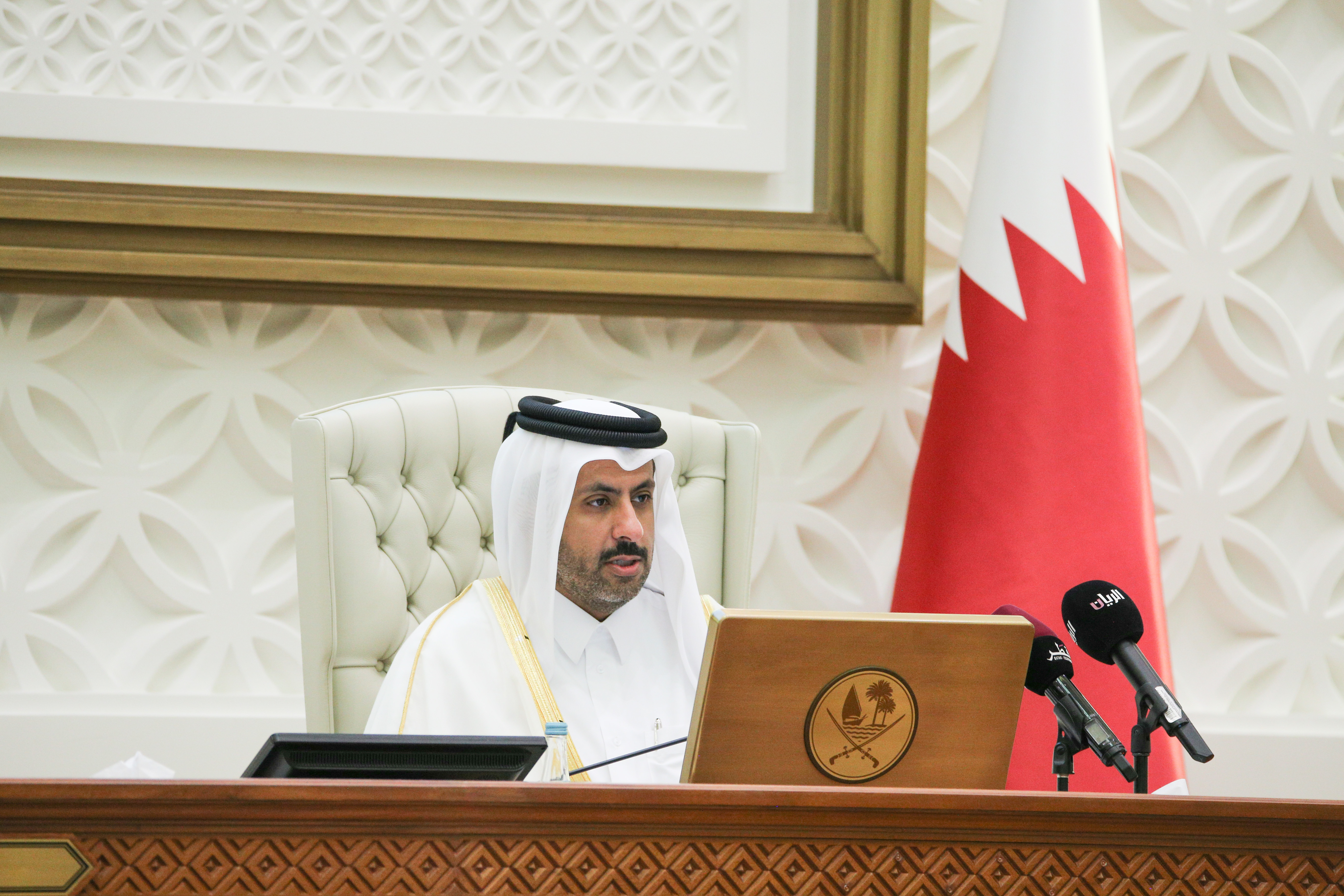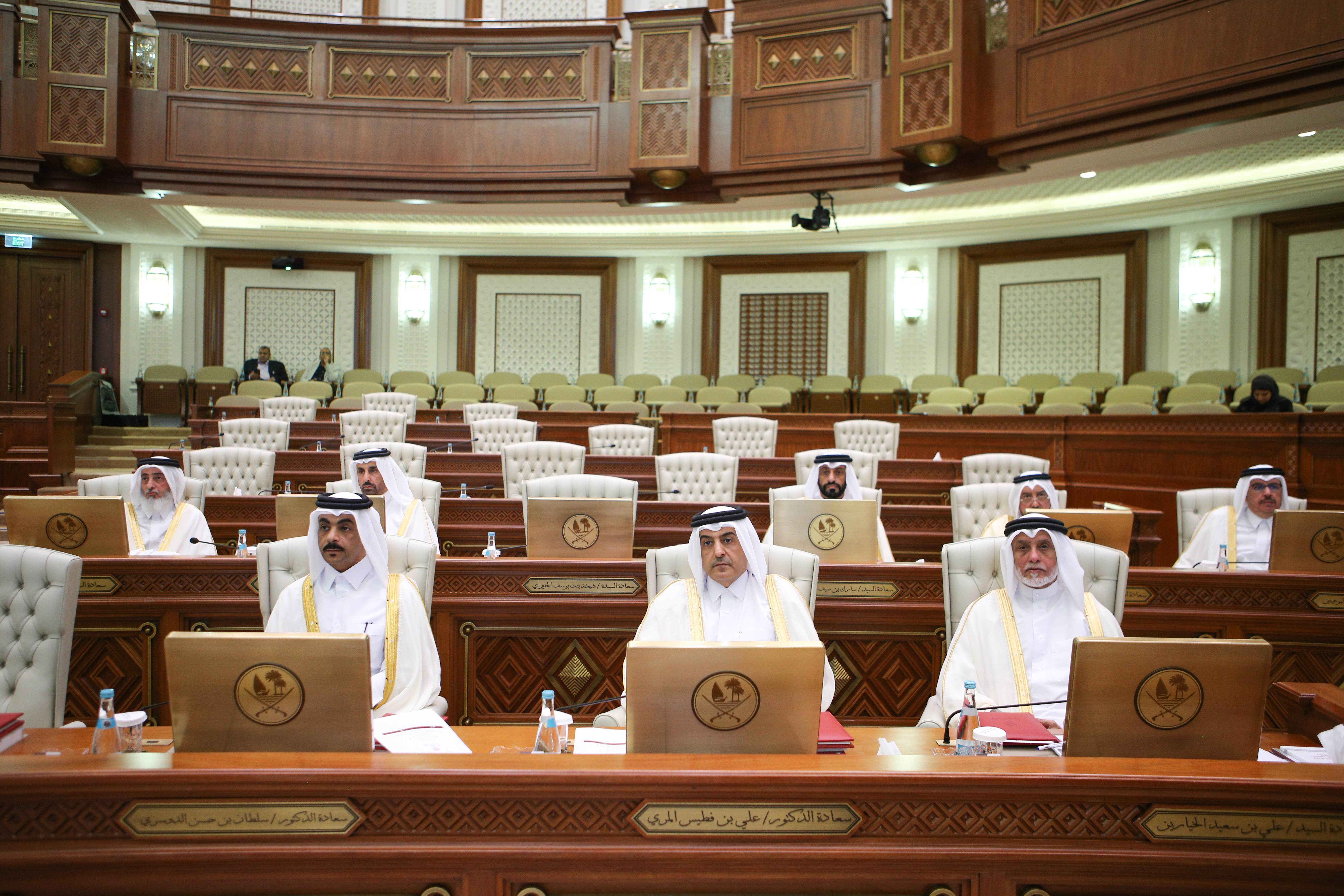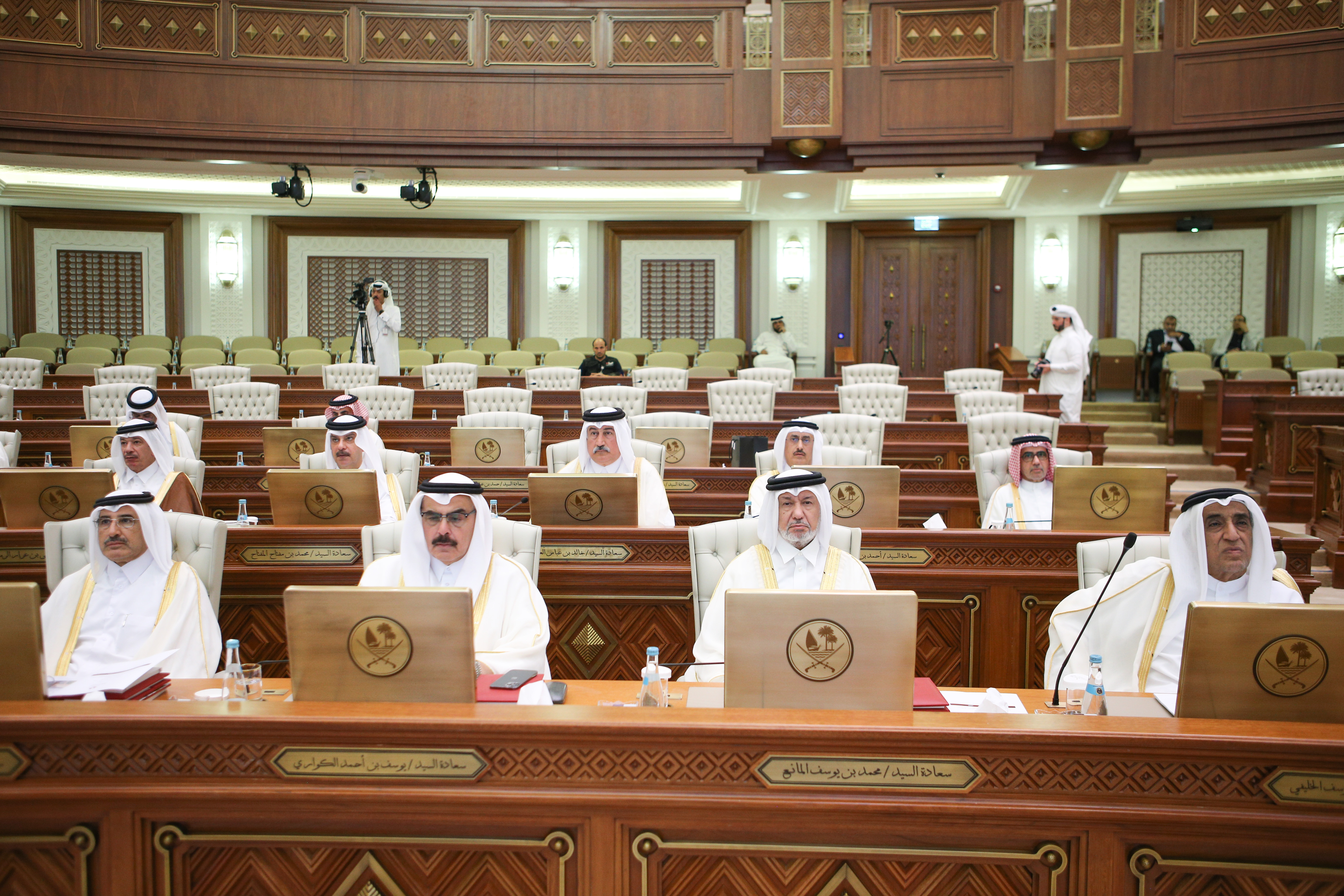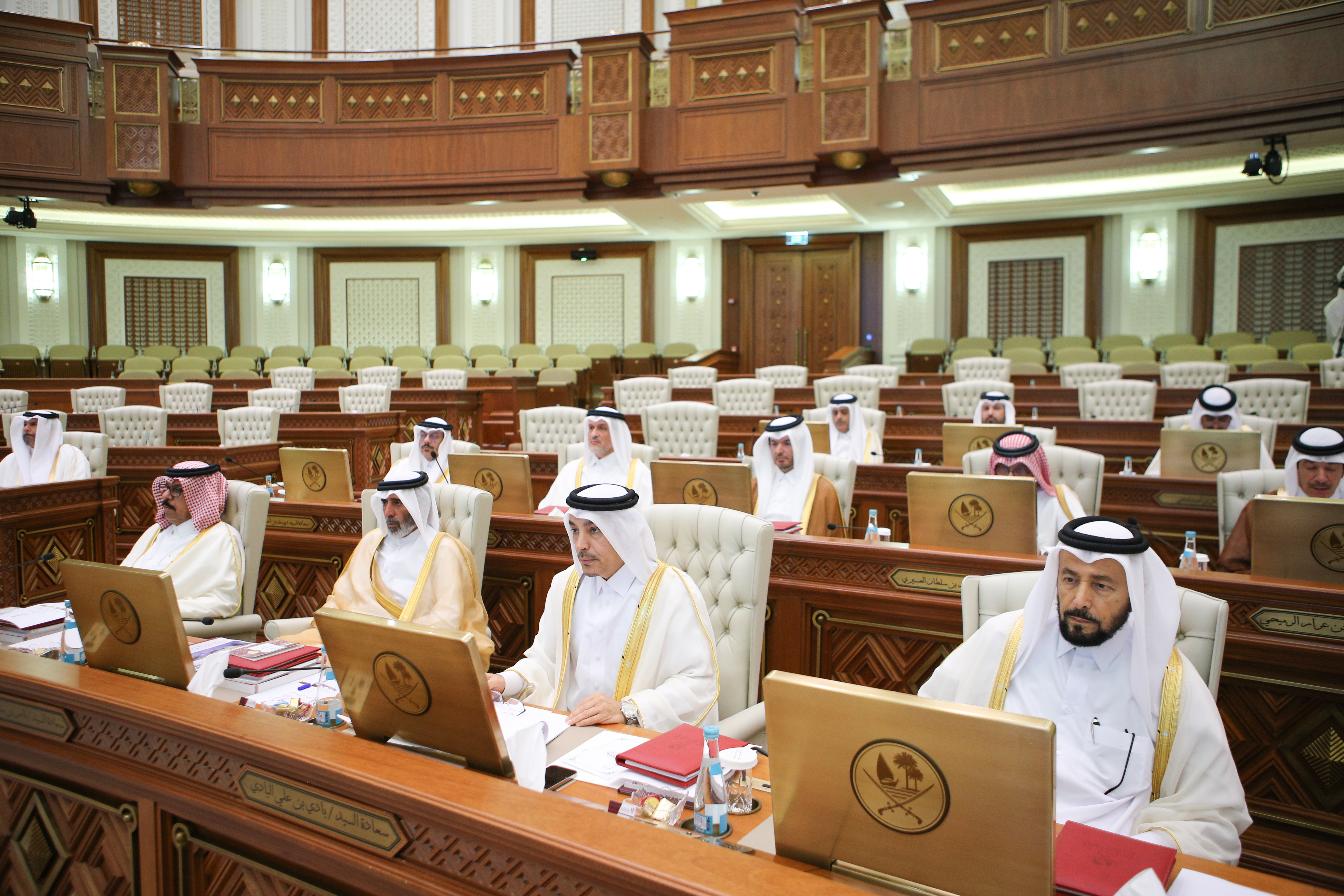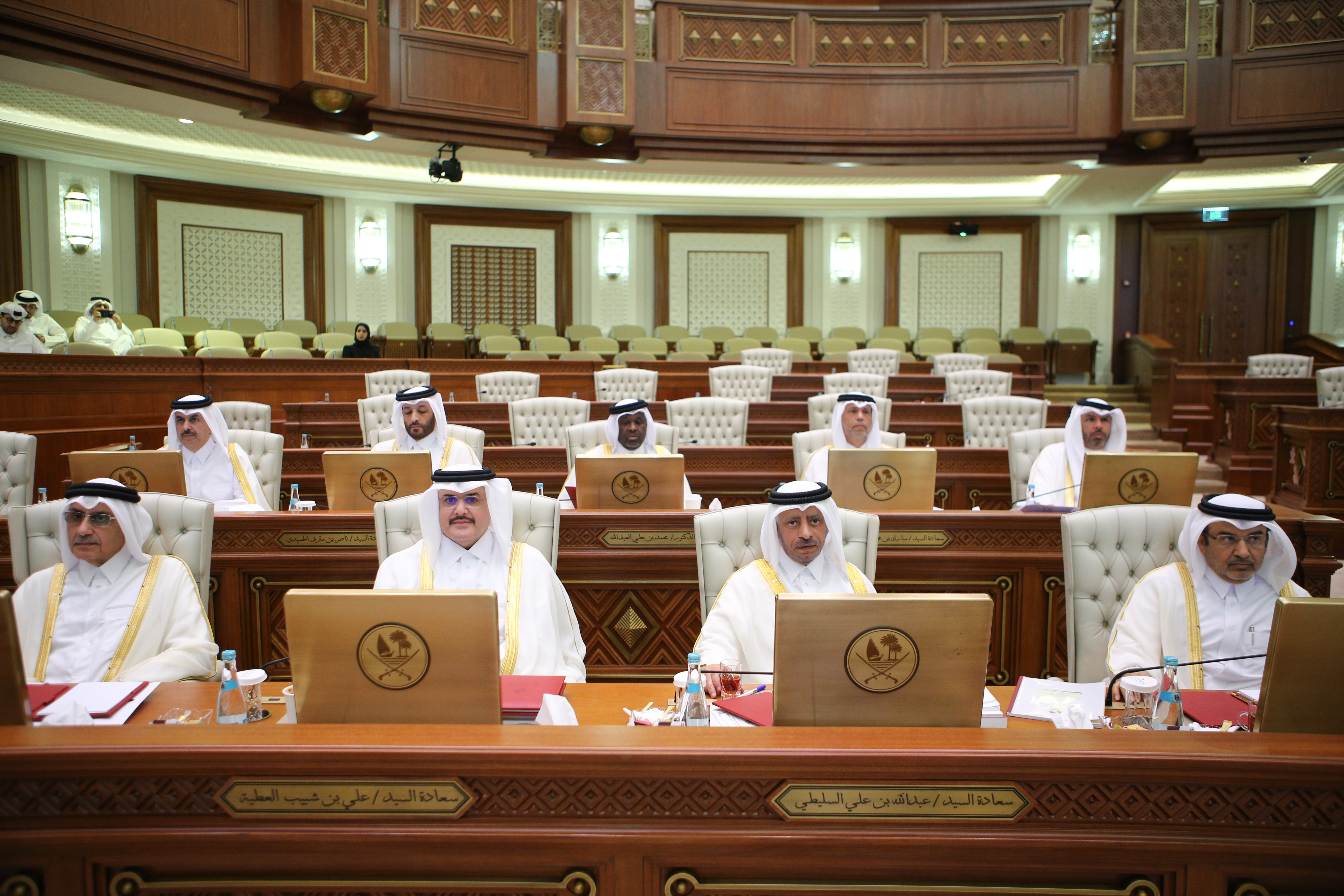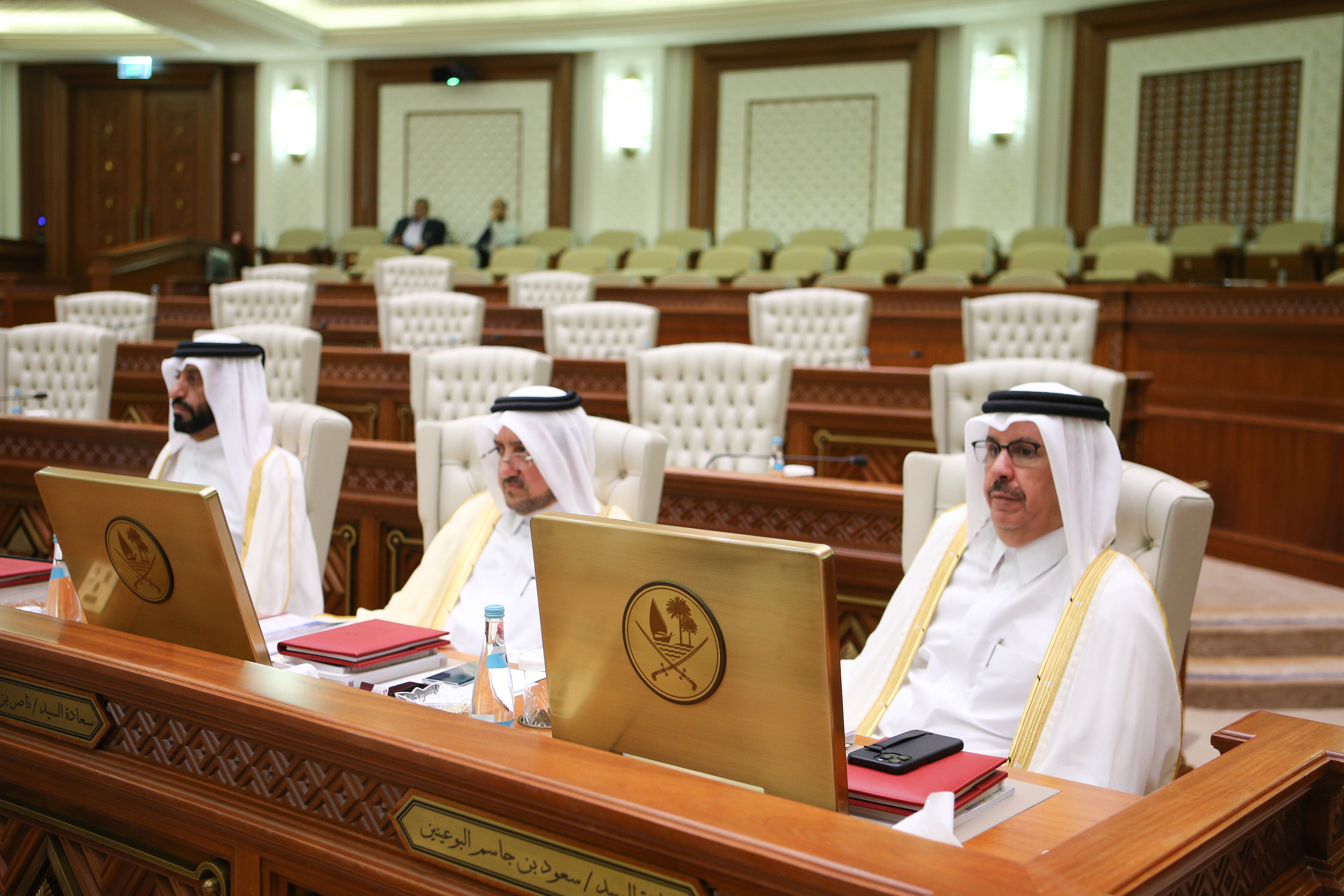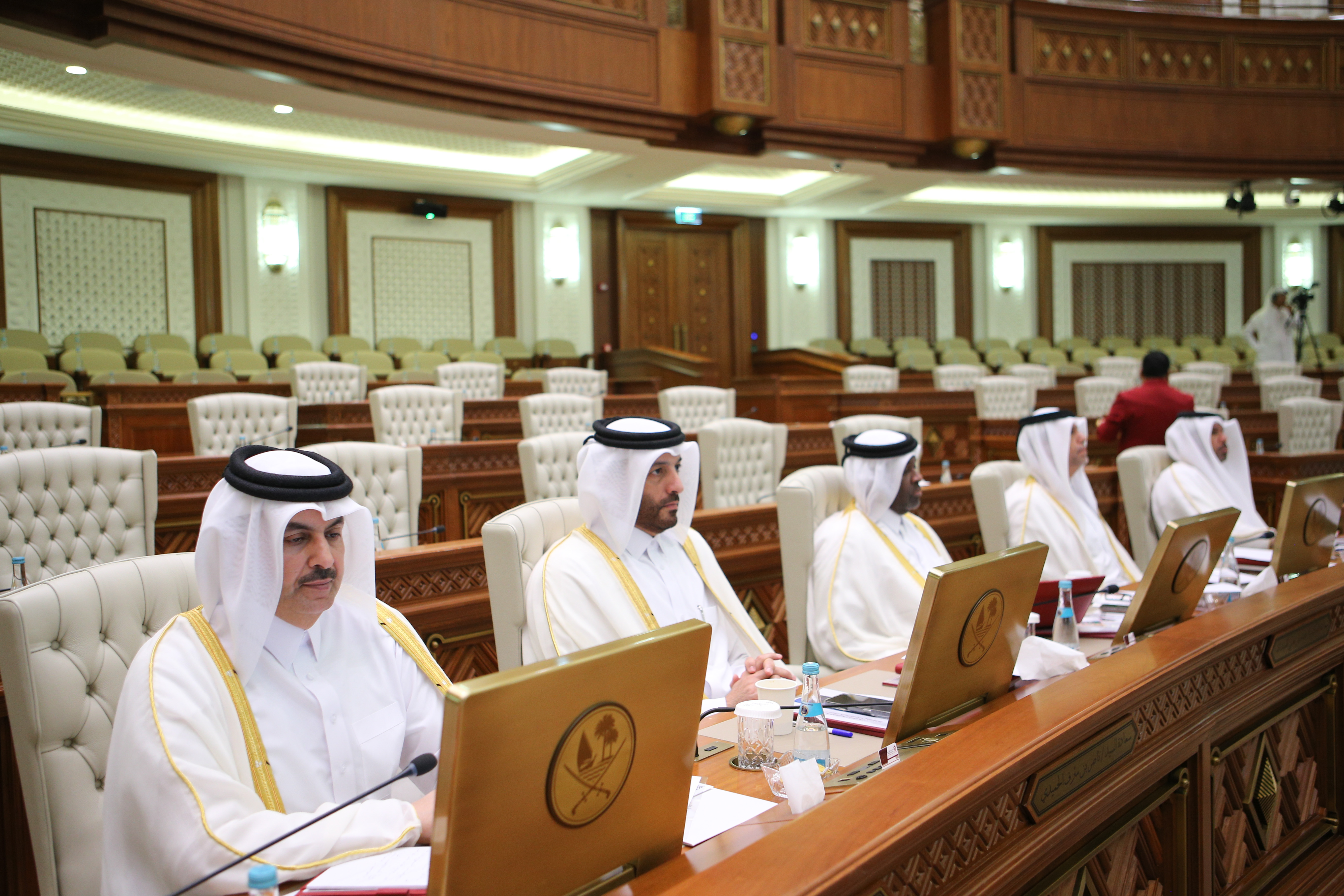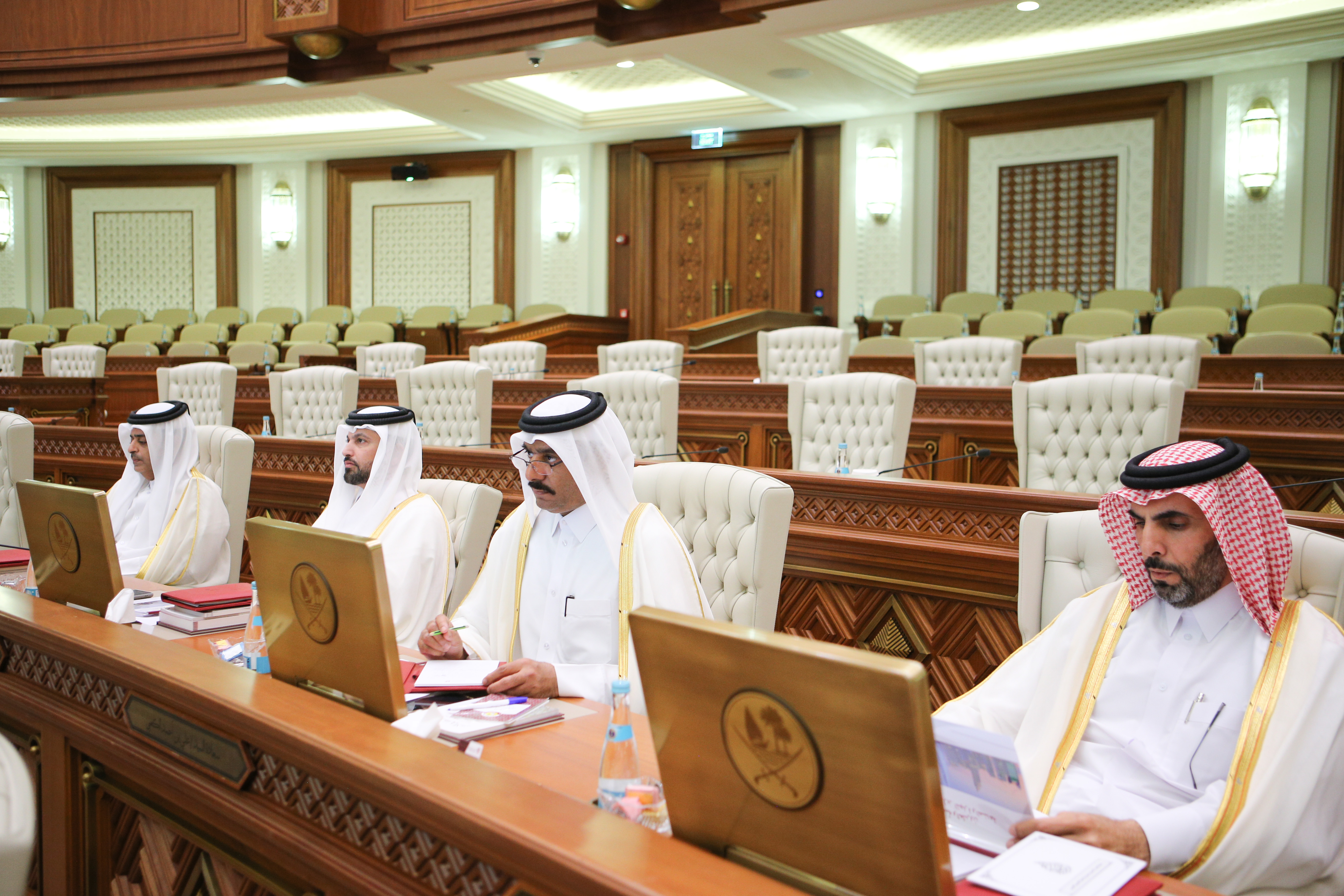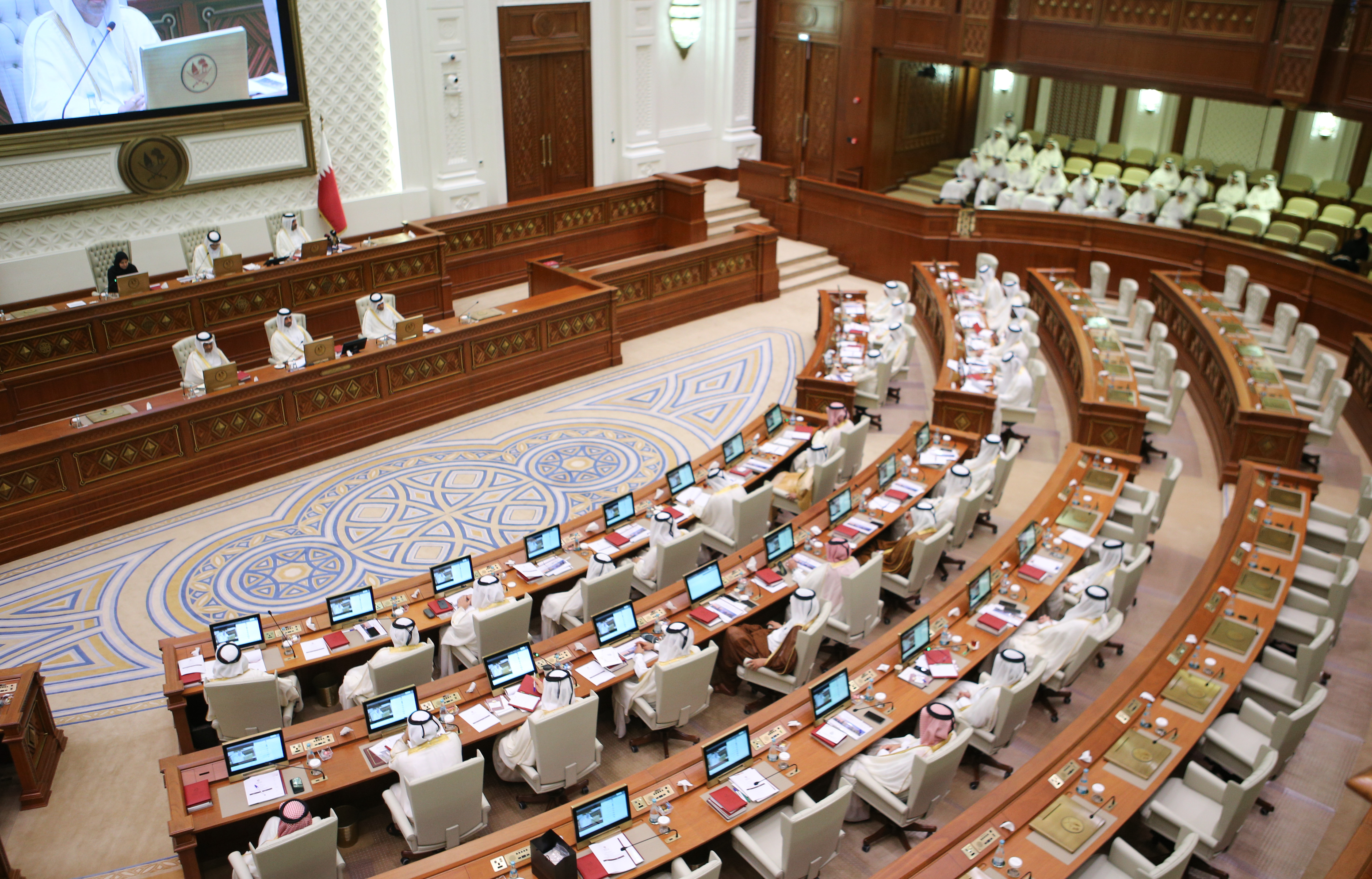Shura Council Hails HH the Amir's Russia Visit, Reviews MOCI Efforts to Develop Commercial, Investment and Service Sectors
21 April 2025
The Shura Council held Monday its routine weekly sitting, chaired by HE the Speaker Hassan bin Abdullah Al Ghanim and attended by HE Minister of Commerce and Industry, Sheikh Faisal bin Thani Al-Thani.
The sitting at the Tamim bin Hamad Hall started with the legislature hailing the outcomes of HH the Amir Sheikh Tamim bin Hamad Al-Thani's official visit to the Russian Federation the previous week and His Highness' talks with HE President of the Russian Federation Vladimir Putin.
The legislative body said the talks bolstered bilateral cooperation across various fields and highlighted the two countries' convergent views on regional and international issues, primarily the efforts backing peace efforts in the Middle East and their firm positions on the Palestinian issue.
HH the Amir's visit continues the robust relations between the two countries and manifests the prudent leadership's keenness to strengthen bilateral cooperation across various areas of common interest, the lawmakers said.
In another area, the Council strongly condemned dangerous suggestions by parties affiliated with the Israeli occupation to bomb and demolish the blessed Al-Aqsa Mosque and construct an alleged Temple in its place as a blatant provocation and incitement that offends Muslim sentiments and poses a grave escalation in the region.
Responding to such calls, the legislature reiterated its categorical rejection of any infringement on the historical and legal status of Al-Aqsa Mosque and Holy Jerusalem, calling on the international community to assume its legal and moral responsibilities towards protecting Islamic holy sites and obligating the occupation to cease its repeated violations.
It also reiterated the State of Qatar's firm position in support of the Palestinian cause and the legitimate rights of the Palestinian people, primarily the establishment of an independent state on the 1967 borders with East Jerusalem as its capital, in accordance with international legitimacy resolutions.
In another context, HE the Minister of Commerce and Industry presented the key items of the Ministry of Commerce and Industry (MOCI) Strategy 2024-2030 and its contributions to boosting economic diversification, developing the business landscape, and supporting non-oil sectors in line with Qatar National Vision 2030.
His Excellency said the strategy aims to diversify income and amplify the revenues of non-oil sectors, with a focus on developing the trade and industry sectors and stimulating local and foreign investment, thus enhancing the competitiveness of the Qatari economy in light of global changes.
Also among the points addressed in His Excellency's presentation were the efforts to develop MOCI's e-services, including expanding the provision of fully digital commercial licensing and registration services and simplifying procedures to conduct commercial activities, ensuring a conducive and growth-enhancing business environment.
Furthermore, His Excellency highlighted MOCI's moves to counter commercial fraud and ensure the protection of consumer rights, through the activation of field and digital monitoring systems and strengthening partnerships with relevant authorities to implement the highest standards of safety and quality in the markets.
HE Minister of Commerce and Industry Sheikh Faisal bin Thani bin Faisal Al-Thani also discussed the Ministry's efforts to support small and medium-sized enterprises (SMEs), providing incentives and facilities that enable entrepreneurs to engage in the market and enhance their competitiveness. He emphasized the Ministry's commitment to facilitating the business environment and promoting innovation.
Sheikh Faisal explained that the Ministry is working to protect intellectual property and develop legislation related to patents and trademarks, contributing to the consolidation of a culture of innovation and encouraging creativity within the country.
He stressed the Ministry's dedication to protecting Qatari products and promoting national industries through technical and marketing support programs, developing supply chains, and providing internal and external marketing outlets that help local products reach new markets.
His Excellency also addressed the Ministry's policies related to regulating fees and privileges related to commercial activities, explaining that these policies are subject to continuous review with the aim of striking a balance between encouraging investment and sustaining resources.
HE Speaker of the Shura Council, Hassan bin Abdullah Al Ghanim, emphasized the pivotal role played by the Ministry of Commerce and Industry in supporting the pillars of the national economy and promoting economic diversification through policies aimed at empowering the private sector, developing the business environment, and stimulating innovation and entrepreneurship.
His Excellency also highlighted the importance of addressing global economic challenges through integrated strategic plans that contribute to achieving sustainable development goals.
Following the presentation, members of the Shura Council lauded the Ministry's efforts in developing the commercial and industrial sectors, enhancing the investment and entrepreneurship environment, and supporting national industries, thus contributing to achieving national development goals. They emphasized the importance of continuing these efforts to strengthen Qatar's economic position and achieve society's aspirations.
Their Excellencies the members raised a number of questions, focusing on the need to strengthen the country's position as a regional and global center for trade and industry, attract foreign investment, open new markets for local products and services, and support Qatari companies in their global expansion.
Their remarks also addressed overseeing e-commerce, facilitating procedures for investors and entrepreneurs, supporting national SMEs, and ways to support farms and national production projects.
They emphasized the importance of the strategy, including practical programs to support producers and ensure the smooth flow and quality of goods in the local market.
Their excellencies highlighted the important role played by the "One-Stop Shop" in facilitating company establishment procedures. They also emphasized the importance of developing some technical and logistical aspects to speed-up and enhance user experience, thus supporting the country's business environment.
They also stressed the importance of protecting consumer rights, combating commercial fraud, and taking measures that reduce the cost of commercial and industrial activities, thus contributing to the provision of products and services at competitive prices.
Shura Council members addressed the ration card, emphasizing its importance in supporting citizens' basic food needs and its role in enhancing food security for Qatari families.
They called for reconsidering the possibility of increasing the number of items included in the ration card and improving the support mechanism provided to meet the needs of Qatari families and price changes in the markets.
For his part, HE the Minister of Commerce and Industry, praised the proposals and observations presented during the session, stressing that the Ministry is working to develop its tools in coordination with various entities.
His Excellency added that the next phase will witness the launch of new initiatives that serve the development of the national economy and contribute to raising market efficiency and achieving market balance, which will reflect positively on citizens' well-being and quality of life.
At the conclusion of the session, HE Al Ghanim briefed the Council on the results of his participation, leading the Council's delegation, in the inaugural meeting of the Parliamentary Group in Solidarity with Palestine, held in Istanbul last Friday. The meeting was initiated by the Turkish National Assembly, with the aim of unifying parliamentary positions in support of the Palestinian people.
His Excellency explained that the meeting witnessed broad participation and discussed ways to confront the Israeli aggression on Gaza and the need to activate the parliamentary role in holding the occupation accountable.
He pointed to the Joint Declaration's affirmation of the legitimate rights of the Palestinian people, foremost among them the establishment of an independent state on the 1967 borders with East Jerusalem as its capital.

